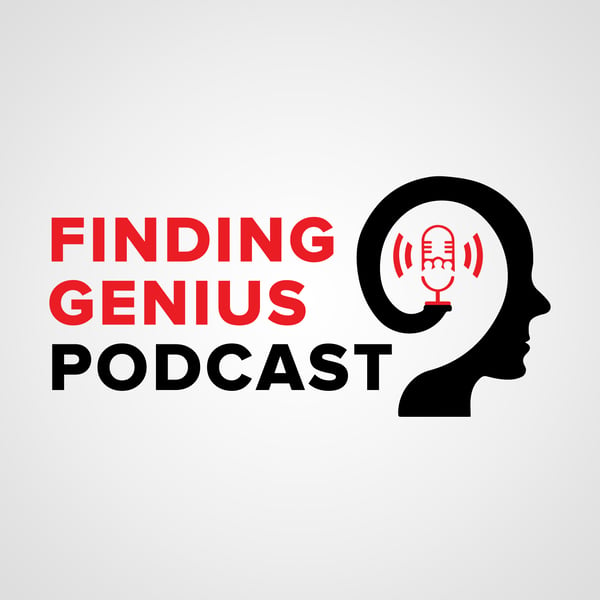Rogue Cells: Cancer and Evolution with David Goode
Finding Genius Podcast
Richard Jacobs
4.4 • 1K Ratings
🗓️ 28 April 2021
⏱️ 37 minutes
🧾️ Download transcript
Summary
"These tumors actually becoming something that's very, very different in response to therapy. And this allows them then to survive and adapt," says David Goode, regarding current studies he's leading on cancer, specifically prostate. He adds that by changing cell type, these cancer cells evade treatment by altering what they need. He describes intricacies in cancer progression he's learned through computational biology work that could inform better treatment.
Listen and learn
- How his lab utilizes genetics biology and cancer evolution nature to figure out what makes some tumors more aggressive than others,
- Why this type of cancer genetics and genomics work offers evolutionary clues regarding resistance development,
- How prostate cancer cells transdifferentiate into a neuro endocrine cell type so that they don't need testosterone anymore, and
- What "signatures of loss of multicellularity" means and why his lab studies the process in cancer cells.
David Goode is group leader and faculty in the Computational Biology Program with the Peter MacCallum Cancer Center in Australia. His work engages the importance of genetics and evolution in cancer through bioinformatics, genomics, molecular evolution, and population genetics.
He and colleagues are trying to better understand the results of cancer evolution. They use mathematical models where they can stimulate tumor growth in simulations. This allows them to follow progressions and different mutations and clonal populations over changes in tumors at different points in time of therapy.
He gets specific about some of their cutting-edge techniques and research. While they use whole genome sequencing or exome sequencing, he adds that, "single cell technologies are really powerful, and that's something we are looking to move into where you can actually profile individual cells." For now, they also utilize tools and analyses in their computational work to understand how tumors become resistant to therapies. He adds, "if we know that, then perhaps we can come up with better ways to treat patients that will prevent the tumors from becoming resistant in the first place."
Listen in for more about this promising research.
Episode also available on Apple Podcasts: apple.co/30PvU9C
Transcript
Click on a timestamp to play from that location
| 0:00.0 | Forget frequently asked questions. |
| 0:02.0 | Common sense, common knowledge, or Google. |
| 0:05.0 | How about advice from a real genius? |
| 0:07.0 | 95% of people in any profession are good enough to be qualified in license. |
| 0:11.0 | 5%? |
| 0:12.0 | Go above and beyond. |
| 0:13.0 | They become very good at what they do. |
| 0:15.0 | But only 0.1% are real geniuses. |
| 0:18.0 | Richard Jacobs has made his life's mission to find them for you. |
| 0:22.0 | He hunts down and interviews geniuses in every field. |
| 0:25.0 | Sleep science, cancer, stem cells, ketogenic diets, and more. |
| 0:29.0 | Come the geniuses. |
| 0:30.0 | This is the Finding Genius Podcast. |
| 0:33.0 | The Richard Jacobs. |
| 0:36.0 | Quick note before we begin. |
| 0:39.0 | The Finding Genius Foundation, as part of the Finding Genius Podcast, |
| 0:42.0 | has recently completed a book about understanding viruses. |
| 0:46.0 | So the creation of this book was to interview 100 virologists, |
| 0:50.0 | ask them a lot of deep difficult questions, take the most difficult questions, |
| 0:54.0 | and then re-interview the top 25 or so, |
| 0:57.0 | and ask them the hardest questions I could think of. |
| 1:00.0 | And we compile that all into a book. |
... |
Please login to see the full transcript.
Disclaimer: The podcast and artwork embedded on this page are from Richard Jacobs, and are the property of its owner and not affiliated with or endorsed by Tapesearch.
Generated transcripts are the property of Richard Jacobs and are distributed freely under the Fair Use doctrine. Transcripts generated by Tapesearch are not guaranteed to be accurate.
Copyright © Tapesearch 2025.

